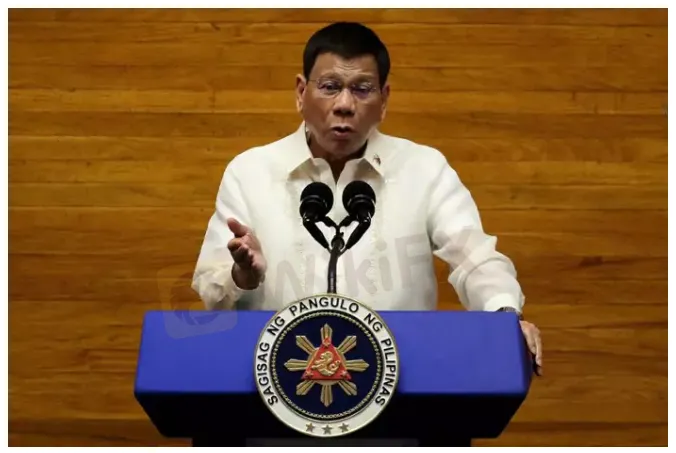简体中文
繁體中文
English
Pусский
日本語
ภาษาไทย
Tiếng Việt
Bahasa Indonesia
Español
हिन्दी
Filippiiniläinen
Français
Deutsch
Português
Türkçe
한국어
العربية
Philippine president vetoes bill seeking to tackle social media abuse
Abstract:Philippine President Rodrigo Duterte has vetoed a bill that would require social media users to register their legal identities and phone numbers, calling for a more thorough study of the measure, his spokesperson said on Friday.

Lawmakers had approved the measure earlier this year as they sought to thwart online abuse and misinformation, especially in the run up to the May 9 general election. But with Dutertes veto, the bill is unlikely to be passed before the poll.
Social media has become a key campaigning platform for candidates running for president, vice president, and thousands of seats in the two chambers of Congress and local governments.
Dutertes election victory in 2016 was partly attributed to a well-organised social media campaign, but critics have blamed pro-Duterte trolls and influencers for spreading misinformation to discredit and threaten opponents.
While Duterte had lauded lawmakers efforts to address cybercrimes and other online offences, he disagreed with the inclusion of social media in the bill without detailed guidelines, said presidential spokesperson Martin Andanar.
The lack of guidelines “may give rise to a situation of dangerous state intrusion and surveillance threatening many constitutionally protected rights”, Andanar said.
“It is incumbent upon the Office of the President to ensure that any statute is consistent with the demands of the Constitution, such as those which guarantee individual privacy and free speech,” he said.
The veto should not, however, deter lawmakers from passing effective and strengthened measures that ensure a safe and secure online environment for Filipinos, Andanar said.

Disclaimer:
The views in this article only represent the author's personal views, and do not constitute investment advice on this platform. This platform does not guarantee the accuracy, completeness and timeliness of the information in the article, and will not be liable for any loss caused by the use of or reliance on the information in the article.
Read more

The Daily Habits of a Profitable Trader
Every professional trader follows a structured approach to ensure they are well-prepared, disciplined, and able to seize opportunities with confidence. Whether you are a seasoned investor or an aspiring trader, adhering to a robust daily checklist can significantly enhance your performance. Use this checklist to check if you are a qualified trader

The Impact of Interest Rate Decisions on the Forex Market
Interest rate changes determine currency attractiveness, influencing capital flows and exchange rate trends. Understanding this mechanism helps investors navigate the forex market effectively.

How a Housewife Lost RM288,235 in a Facebook Investment Scam
A 47-year-old housewife in Malaysia recently fell victim to an online investment scam, losing a substantial sum of RM288,235 after engaging with a fraudulent scheme advertised on Facebook.

A Trader’s Worst Mistake: Overlooking Broker Reviews Could Cost You Everything
In today’s digital age, reviews influence nearly every decision we make. When purchasing a smartphone, television, or home appliance, we pore over customer feedback and expert opinions to ensure we’re making the right choice. So why is it that, when it comes to choosing an online broker where real money and financial security are at stake many traders neglect the crucial step of reading reviews?
WikiFX Broker
Latest News
The Withdrawal Trap: How Scam Brokers Lure Victims into Paying More
FCA to Investors: Think Twice Before Trusting These Brokers
Trump\s tariffs: How could they affect the UK and your money
Trump gambles it all on global tariffs he\s wanted for decades
TradingView Brings Live Market Charts to Telegram Users with New Mini App
Trump tariffs: How will India navigate a world on the brink of a trade war?
Interactive Brokers Launches Forecast Contracts in Canada for Market Predictions
Authorities Alert: MAS Impersonation Scam Hits Singapore
IG Group Acquires Freetrade for £160M to Expand UK Investment Market
U.S. March ISM Manufacturing PMI Released
Currency Calculator







